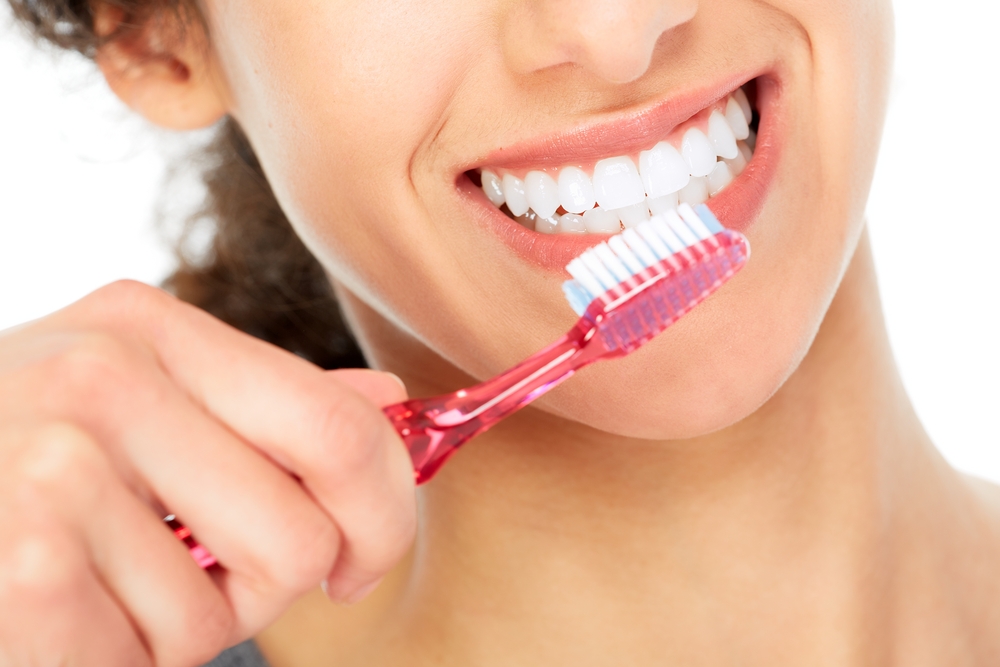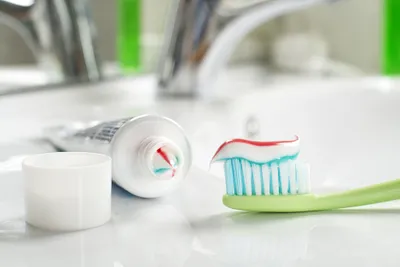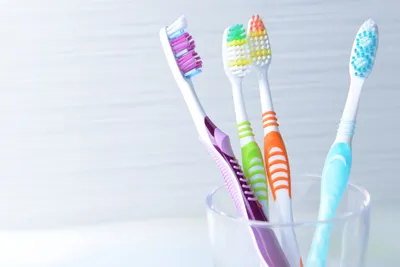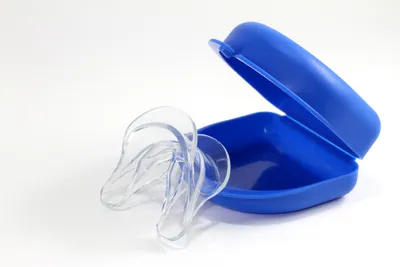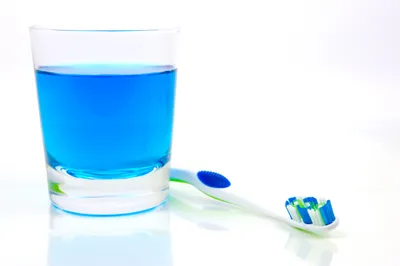Experiencing sharp pains when consuming hot and cold foods and beverages, or when breathing in cold air, are common indicators of sensitive teeth. Caused by the wearing down of enamel—the protective layer on the outside of a tooth—the Oral Health Foundation says that sensitivity is usually felt “where the tooth and the gum meet and the enamel layer is much thinner.”
There are a wide variety of factors that can contribute to dentin hypersensitivity, as it is otherwise known, including aggressive brushing, gum disease and excessive teeth bleaching. Fortunately, there are several at-home remedies that can help to reduce teeth sensitivity—including these six.
1. Use Sensitive Toothpaste
If oral discomfort is occurring on a fairly regular basis, it may be time to switch to sensitive toothpaste. Look for products that contain the ingredient potassium nitrate, which Best Health magazine says “helps to block the tiny tubules in the dentin” that, when exposed, can cause throbbing or stinging.
In addition to using twice daily when brushing, try coating the sensitive area with a small amount of paste and leaving it on over night. Livestrong.com says that, if done regularly, this can help to significantly reduce issues within a several weeks.
2. Swap Toothbrush
Most of us are guilty of using a toothbrush long past its prime. As the bristles wear down and become frayed, we may feel the need to brush harder in order to achieve our desired cleanliness.
But toothbrush abrasion is one of the leading causes of damage to enamel. To avoid this, the Oral Health Foundation recommends replacing a toothbrush every two to three months, as well as using one that has soft- to medium-bristles.
3. Alter Brushing Technique
Dentists often spend a great deal of time teaching children how to brush their teeth properly, by but adulthood most people have forgotten the technique, causing them to use incorrect and damaging methods.
Women’s Health Magazine says that the back-and-forth motion many of us resort to is wrong and can cause the gums to recede. The source suggests holding the toothbrush at a 45-degree angle and brushing gently in a circular motion.
4. Avoid Sugary and Acidic Foods
Regularly consuming foods that are acidic and often full of sugar—such as carbonated beverages, wine, citrus fruits and yogurt—can slowly compromise the enamel over time, leading to sensitivity.
The Mayo Clinic suggests keeping these foods and drinks to a minimum in one’s diet. But if they cannot be avoided, drink milk or water immediately after consumption to balance the acid levels in the mouth. It’s best to avoid brushing right away, though, as the already-softened enamel could be further damaged.
5. Wear a Mouth Guard
Grinding the teeth while asleep is another primary cause of sensitive teeth, as the friction can wear away the enamel. We may not realize we do this, but it can be what’s leading to sore or sensitive teeth throughout the day, in addition to headaches and jaw pain.
To prevent grinding, Colgate recommends wearing a mouth guard, which “acts as a protective bite piece that is placed on your teeth to protect the enamel.” They are often found in the oral care section of stores or can be purchased directly from a dentist.
6. Use Fluoride
Regularly using fluoride can help to strengthen tooth enamel and reduce pain. For those with sensitive teeth it should be part of a daily oral care routine, as bi-annual treatments by the dentist at check-up appointments often aren’t enough.
After brushing the teeth with sensitive care toothpaste (that often contains fluoride), swish a fluoride rinse around the mouth. Or in situations where a toothbrush isn’t immediately accessible, keep a small bottle close by and use one hour after consuming acidic or sugary foods to help mitigate discomfort.
